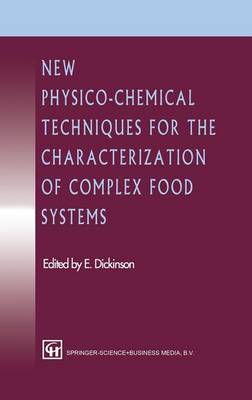'There is no higher or lower knowledge, but only one, flowing out of experimen tation. ' (Leonardo da Vinci, 1452-1519) Food materials are complex in terms of composition, structure and mechanical properties. In order to understand the relationship between these different kinds of complexity, the experimental food scientist has a wide range of physico-chemical techniques at his or her disposal. But, in practice, of course, there are often severe limitations on the techniques which are available for any particular investigation. Apart from obvious constraints associated with instrument cost and accessibility, one com mon problem is a lack of knowledge by the non-expert about the capabilities and limitations of every new advance in instrumentation. No individual worker in the field of food science can become expert in more than a very small number of experimental techniques. On the other hand, most of us wish to know enough about the major emerging experimental technologies to enable us to make a realistic assessment of what they may have to contribute towards any new problems that we may meet. This book collects together in a single volume an up-to-date set of introductory articles describing a range of new physico-chemical tech niques which can be used to probe food structure at the molecular, colloidal and microscopic levels. Each individual chapter is written by an acknowledged expert in his field.
- ISBN13 9780751402520
- Publish Date 31 December 1995
- Publish Status Active
- Publish Country GB
- Publisher Taylor & Francis Ltd
- Imprint Chapman and Hall
- Edition 1995 ed.
- Format Hardcover
- Pages 356
- Language English
